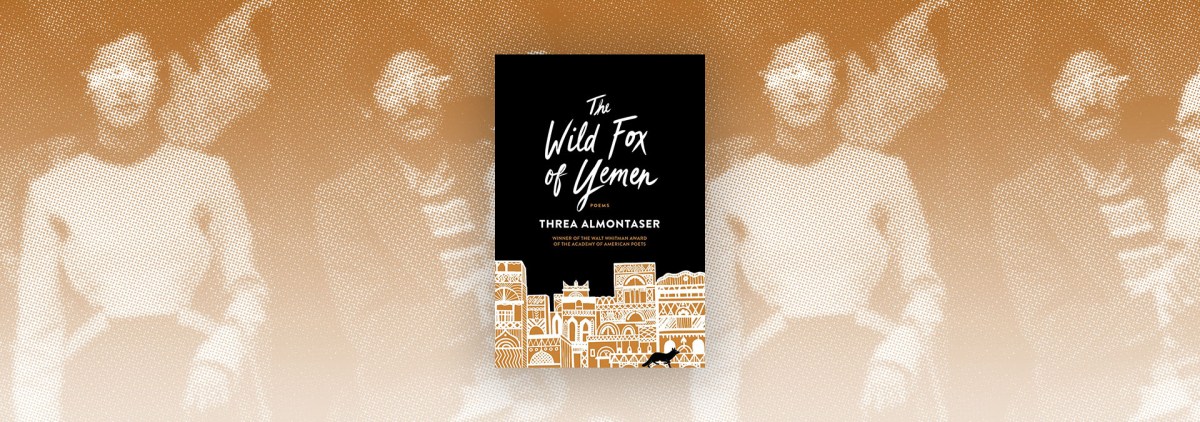[ad_1]
Yemeni American poet and translator Threa Almontaser won the 2020 Walt Whitman Award of the Academy of American Poets for her brilliant debut poetry collection, The Wild Fox of Yemen. Her poems touch on young rebellion, the thin veil of protection a language grants you, and how history is often stored in the body.
The beautifully crafted poems can feel like mini-histories, intricate narratives spanning only a few pages. They overflow with richness and opportunities for interpretation, shifting between Arabic and English; yet they are self-contained and pointed as a missile.
In the United States—a country that still fosters hatred toward foreigners—it is not inherently clear how, even if you assimilate into American culture, you are supposed to live as though your skin color or garb are not noticed or even loathed. From the book’s piercing opener, “Hunting Girliness”:
My girliness is a whistle uphill,
& my mother is too far down to hear it.
She says, Stop being reckless. I say, Truth is,
I quit being cautious in third grade
when the towers fell &, later, wore
the city’s hatred as hijab.
This poem also delivers a glimpse into how that recklessness emerges in what we can control:
We all choose how to fill
the lingering lack inside us: I lace bitch-loud
boots to the knees. Scab soft skin
on asphalt.
The 9/11 attacks largely defined Almontaser’s childhood in New York, a time when the NYPD started conducting more unreasonable search and seizures in Muslim American homes and increased the number of immigrants surveilled, deported, or detained. Her poetry reflects that experience in poignant portraits like “Home Security After 9/11”:
At the break of moon, a front door Herculesed
to pine dust, children dreaming of [ ].
Forced from sleep,
dogs shepherd us into a nightened cave,
where a mother is crying, Let me grab a scarf, just a scarf.
Installing security cameras and speaking in foreign languages may temporarily protect the home, the words spoken in private, but what about everywhere else? What about spaces when Muslim women are judged only by their hijabs?
“My hair is not taking any visitors right now,” Almontaser writes to open the poem, “When White Boys Ask to See My Hair.” As though her hair becomes objectified in its mysteriousness, in her unwillingness to give into what American men want her to be. She ends:
My hair joined a deep-rooted Bedouin tribe. She enjoys feeding nomadic camels from
her palm, became the shaykh’s third wife, and sings ancient poetry into campfires. She is
happy. I don’t think she is coming back.
Almontaser is cunning in how she exposes the strength of overlapping languages. She’s also incensed; she also handles storytelling, family history, with grace. The Wild Fox of Yemen turns language into its own character, a fact of daily life we take for granted.
In “Heritage Emissary,” her father tells stories of his childhood in Yemen, and she finds kinship with a wild fox he speaks of, “a lost, sly animal.” The image snaps her back into the moment after tuning out his story, told in Arabic, admitting that her languages get jumbled.
The poems also confront Islamophobia seen in other majority-white countries. “Please Take Off Your Shoes Before Entering” is written for the Muslims massacred at two mosques in Christchurch, New Zealand in March 2019, wherefifty-one Muslims were killed and forty-nine were injured. The gunman, who acted alone, live-streamed parts of the attacks on social media.
Yemen is a country in a perpetual state of crisis with its civil war going on seven years, and while Almontaser acknowledges that chaos without overly sentimentalizing that connection to her life in America, she also emphasizes Yemen’s “beauty and richness” in the book’s notes. She says she “would love for people to celebrate that history, to remember it,” instead of the designation she found out the country will have in 2022 if the conflict continues: the poorest country in the world.
Any region is much more than its beauty and richness. It’s the people who create richness, who are present to appreciate the beauty. And Yemen is more than its war, just as the body is more than its flaws. Perhaps in remembering the countries that were once home, one does not feel quite as displaced in an unforgiving country like ours that too often feigns progress.
From “My Father Finds Home through the Birds”:
I long to hang my homeland
on the wall, eat it like a beak hammering at bark, the violent
hunger. For someone to point me on a map, take their finger
& say, Here she is.

POETRY
The Wild Fox of Yemen
By Threa Almontaser
Graywolf Press
Published April 6, 2021

[ad_2]
Source link
